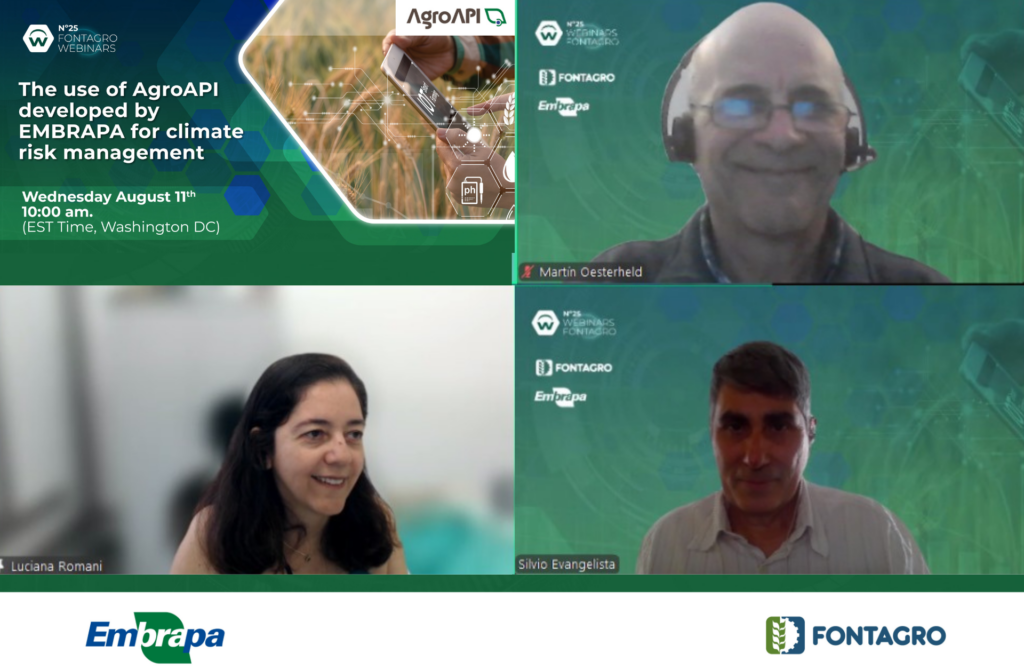
FONTAGRO and EMBRAPA are organizing a series of webinars covering key topics in agriculture and climate change. These sessions explore new methods for optimal crop allocation based on climate data, innovative tools developed by EMBRAPA to help farmers manage climate risks, and the latest advances in the monitoring and prediction of climate impacts on agriculture in Brazil.
This event marked the second webinar in the series, featuring prominent researchers from EMBRAPA, among them Luciana Santos Romani – PhD in Computer Science with expertise in data mining, HCI, information visualization, remote sensing, and agrometeorology; and Dr. Silvio Medeiros Evangelista – PhD in Electrical Engineering with a focus on Computational Theory and the development of agrometeorological models. The webinar was moderated by Dr. Martín Oesterheld – PhD in Biology (Syracuse University College of Arts and Sciences) and Research Advisor at FONTAGRO.
During the event, the specialists discussed the functionality of the AgroAPI platform, which provides agricultural information and models generated by EMBRAPA. These resources can be used by companies, public and private institutions, as well as startups to develop software, web systems, and mobile applications for the agricultural sector, leading to cost and time savings.
Data and models can be accessed virtually through APIs (Application Programming Interfaces), a set of standards and programming languages that enable automated communication between different systems in a fast and secure manner.
To access the recording of this webinar, visit:
https://www.youtube.com/live/6JK3HAKUuGE?si=d3q0CSOuwqyDVuZN
To learn more about AgroAPI, visit:
https://www.agroapi.cnptia.embrapa.br/portal/
***
About FONTAGRO
FONTAGRO was created 1998 with the purpose of promoting the increase of the competitiveness of the agri-food sector, ensuring the sustainable management of natural resources and the reduction of poverty in the region. The objective of FONTAGRO is to establish itself as a sustainable financing mechanism for the development of agricultural technology and innovation in Latin America and the Caribbean and Spain, and to establish a forum for the discussion of priority topics of technological innovation. The member countries are: Argentina, Bolivia, Chile, Colombia, Costa Rica, Ecuador, Spain, Honduras, Nicaragua, Panama, Paraguay, Peru, Dominican Republic, Uruguay and Venezuela. In the last 27 years 204 regional agricultural innovation platforms have been co-financed for an amount of US $ 150.7 million, which has reached 531 institutions and 35 countries worldwide.
